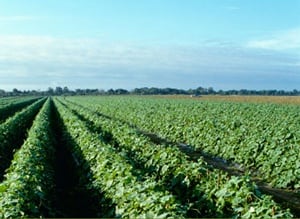Resistance Fighter Leadership Program Honors New Member
South Florida extension agent dedicates his career to helping vegetable growers manage weed, insect and disease resistance.

McAvoy is currently responsible for developing and implementing educational programs for vegetable producers in five counties in southwest Florida. “Throughout my career working in vegetable crops in South Florida, I’ve seen diseases, insects and weeds develop resistance to traditional management programs,” he says. “It’s important to incorporate integrated pest management and other methods to complement chemical programs, and becoming a member of this program is a good way to get the word out there.”
A few years ago, McAvoy saw western flower thrips populations developing resistance to certain insecticides. Acting quickly and with

“Resistance issues are an ever-increasing challenge in agriculture,” says David Laird, head of product biology at Syngenta, North America. “We are proud to partner with advisers like Gene who meet those challenges head on and help find solutions to preserve the tools we have.”

